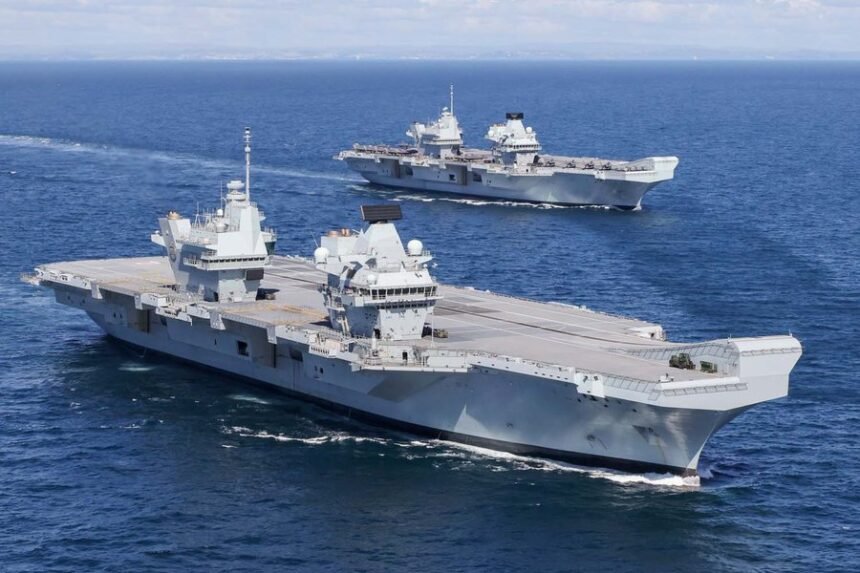Europe is facing a new and uncertain reality where U.S. support for NATO, an alliance that has ensured the continent’s security for nearly eight decades, is no longer guaranteed.
Former U.S. President Donald Trump has openly expressed his distrust towards Ukrainian President Volodymyr Zelensky, shown a dangerous closeness with Vladimir Putin, and declared he would not defend NATO allies “if they don’t pay,” as reported by A2 CNN. These statements have prompted European leaders to consider an unimaginable scenario: Is the U.S. still a reliable security partner for Europe, especially amid the continent’s largest conflict since the 1940s?
Could NATO survive without the United States?
NATO is far from powerless without the U.S. The alliance boasts over one million troops and modern military equipment from its 31 member states. Additionally, it has the wealth and technological expertise to ensure its security.
According to a NATO report, the U.S. and Germany contribute almost 16% each to NATO’s military and civil budget, as well as security investment programs. The United Kingdom contributes 11%, and France 10%. Experts believe that Europe could cover the gap left by a potential U.S. withdrawal.
Ben Schreer, Executive Director for Europe at the International Institute for Strategic Studies (IISS), says that if European nations unite and invest in the right equipment, they could build a strong conventional and nuclear force to deter Russia. “Europe has the resources to protect itself, the question is whether it’s ready to do so,” he added.
For over 75 years, the U.S. has been the backbone of NATO. During the Cold War, American troops in Europe served as a deterrent to the Soviet Union. In the 1990s, NATO’s military campaigns in the Balkans were mainly supported by American forces and aviation. Up until January 20, 2025, when Trump’s second term begins, the U.S. has been the main leader in supporting Ukraine.
However, the transatlantic relationship now appears increasingly fragile. Former NATO official John Lough notes that the U.S. now sees Europe more as a rival than an ally. “If a portion of the U.S. commitment to NATO is lost, practically all of the commitment is lost,” he says. In European political circles, a new question is arising: Should the U.S. now be seen as a foe?
Some analysts believe a NATO without the U.S. could be even stronger. Moritz Graefrath, a foreign policy scholar at Global Research Institute, argues that a potential U.S. withdrawal would force European countries to bolster their defense capabilities. “In this sense, a U.S. departure could lead to an even stronger Europe,” he emphasizes.
European Capabilities
In theory, a European military could be a formidable force. Turkey has the second-largest NATO forces after the U.S., with 355,200 active troops. Next are France (202,200), Germany (179,850), Poland (164,100), Italy (161,850), United Kingdom (141,100), Greece (132,000), and Spain (122,200).
Additionally, several European countries possess advanced weaponry that surpasses Russia’s arsenal. For example, while Russia has only one outdated aircraft carrier, the UK has two modern aircraft carriers, and France, Italy, and Spain also have warships capable of launching fighter jets. Moreover, France and the UK are nuclear powers and possess ballistic missile submarines.
Europe’s air forces consist of about 2,000 fighter jets and bombers, including dozens of F-35s. On the ground, Europe owns advanced tanks like Leopard and Challenger, already used by Ukraine against Russia. Moreover, Europe has powerful missiles like SCALP/Storm Shadow, made by France and the UK.
To enhance defense, in 2024, six European countries launched a project to develop long-range missiles, increased ammunition production, and diversified suppliers, including countries like Brazil, Israel, and South Korea.
Even if the U.S. withdraws from Europe, NATO would retain 31 U.S. bases on the continent, including naval, air, and land bases that could be used by host nations.
What Comes Next?
Some experts believe that Trump’s threat to withdraw from NATO is simply a strategy to pressure allies to increase defense spending. They argue that the situation could play out like South Korea, when Trump threatened to pull U.S. troops, but in the end, everything returned to normal.
If relations between Trump and Putin deteriorate, even Trump may realize the importance of NATO. “If Putin pushes Trump too far, he might realize the danger and change his approach,” says Schreer. Thus, NATO may continue to exist, and these tensions may prove to be a passing episode in history.







